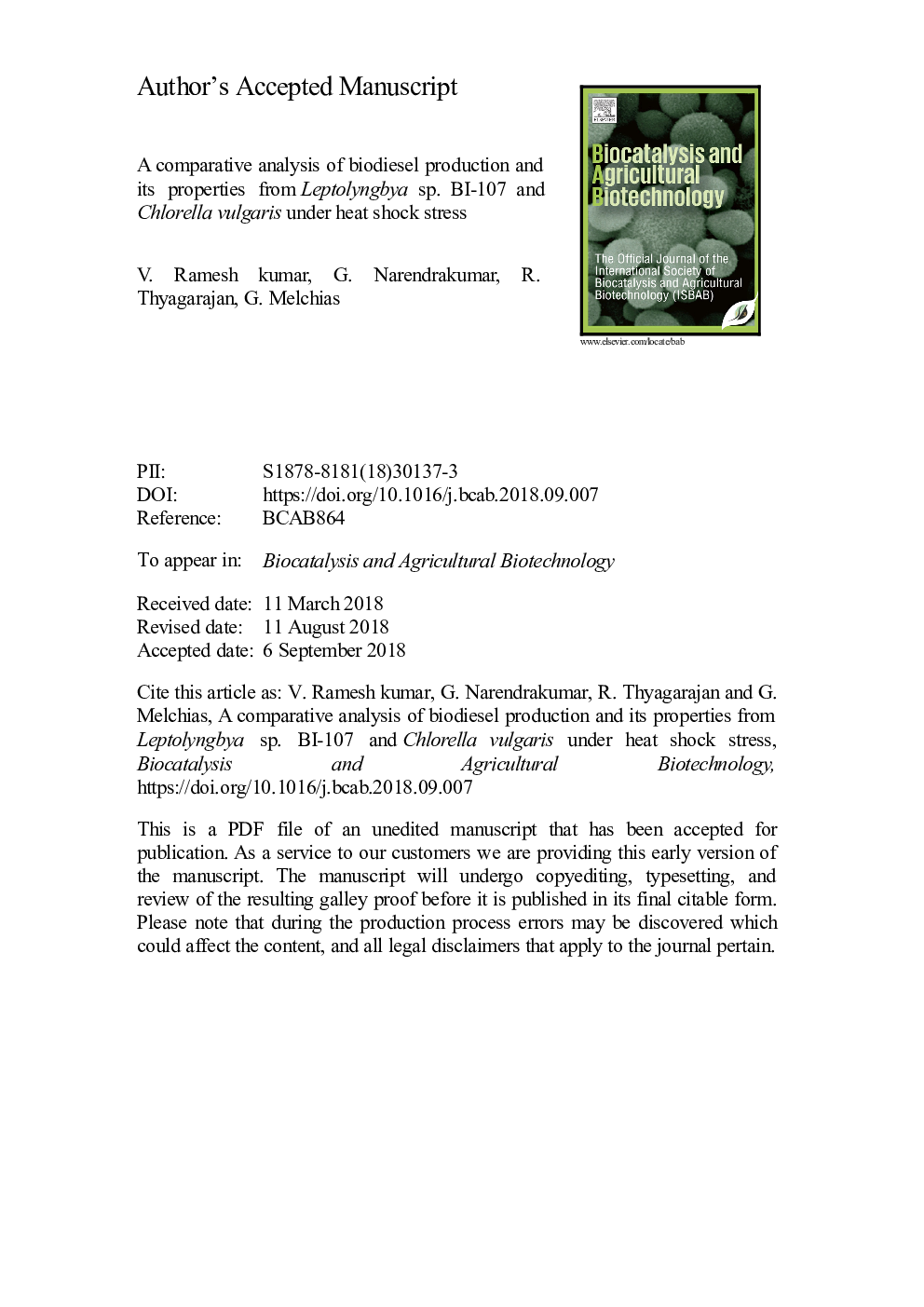| Article ID | Journal | Published Year | Pages | File Type |
|---|---|---|---|---|
| 11007667 | Biocatalysis and Agricultural Biotechnology | 2018 | 21 Pages |
Abstract
Reliance on fossil fuel energy resources has become economically costly and environmentally unsustainable. With the rapid depletion of fossil fuels due to increased demand, the need for alternative fuel from biological resources has gained importance. Although a wide range of alternative energy sources are being experimented, biodiesel from sustainable resources has gained widespread acceptance and importance. Third generation biofuels from microalgae are particularly promising in their yield and application. The present study aims at tapping the highly competent native microalgal species for biodiesel production. Microalgae from kitchen waste water was isolated and characterized as Leptolyngbya sp. by 16S rRNA sequencing. Chlorella vulgaris was taken as a standard for comparison of growth, biochemical and biodiesel producing ability. The microalgal cultures were grown under controlled conditions and their growth rate and lipid productivity were assessed. Temperature stress (heat shock stress) was induced to understand the effect of rising global temperature on microalgae. The biochemical parameters were analyzed under normal and stressed conditions for both the microalgae. Leptolyngbya sp. had better lipid productivity compared to Chlorella vulgaris. The lipids obtained from microalgae were chemically transesterified to biodiesel. Again it was Leptolyngbya sp. that had a higher biodiesel yield. Biodiesel blends were made from the biodiesel thus obtained along with commercial diesel. The properties of Biodiesel 20, Biodiesel 50 and Biodiesel 100 proved them to be suitable for commercial applications. The present work opens up new avenues for native microalgae with potential for biodiesel production.
Related Topics
Life Sciences
Agricultural and Biological Sciences
Agricultural and Biological Sciences (General)
Authors
V. Ramesh kumar, G. Narendrakumar, R. Thyagarajan, G. Melchias,
